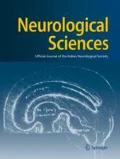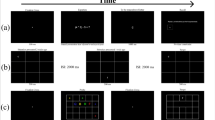Abstract
The objective was to evaluate the construct validity of the Italian version of the Frontal Behavioural Inventory (FBI) and its usefulness in the differential diagnosis of dementias. Standard criteria were used in the clinical diagnosis of dementias in 83 patients and 33 agematched healthy volunteers. The FBI scale was translated from English into Italian language and back-translated. Cronbach's alpha, inter-rater and test-retest reliability, FBI convergent validity and discriminant analysis were calculated. FBI profile was compared between patients affected by frontotemporal lobar degeneration (FTLD) and Alzheimer's disease (AD). The FBI showed a high internal consistency and inter-rater reliability and it distinguished normal behavioural conditions from those presented in FTLD or AD. An 86.8% diagnostic accuracy was calculated by the discriminant analysis, selecting only age at disease onset and FBI, and particularly distinguishing behavioural variants within the FTLD spectrum. FTLD patients showed a characteristic behavioural profile. The FBI might be a reliable and useful diagnostic tool for dementias in clinical practice.
Similar content being viewed by others
Author information
Authors and Affiliations
Rights and permissions
About this article
Cite this article
Alberici, A., Geroldi, C., Cotelli, M. et al. The Frontal Behavioural Inventory (Italian version) differentiates frontotemporal lobar degeneration variants from Alzheimer's disease. Neurol Sci 28, 80–86 (2007). https://doi.org/10.1007/s10072-007-0791-3
Received:
Accepted:
Issue Date:
DOI: https://doi.org/10.1007/s10072-007-0791-3




